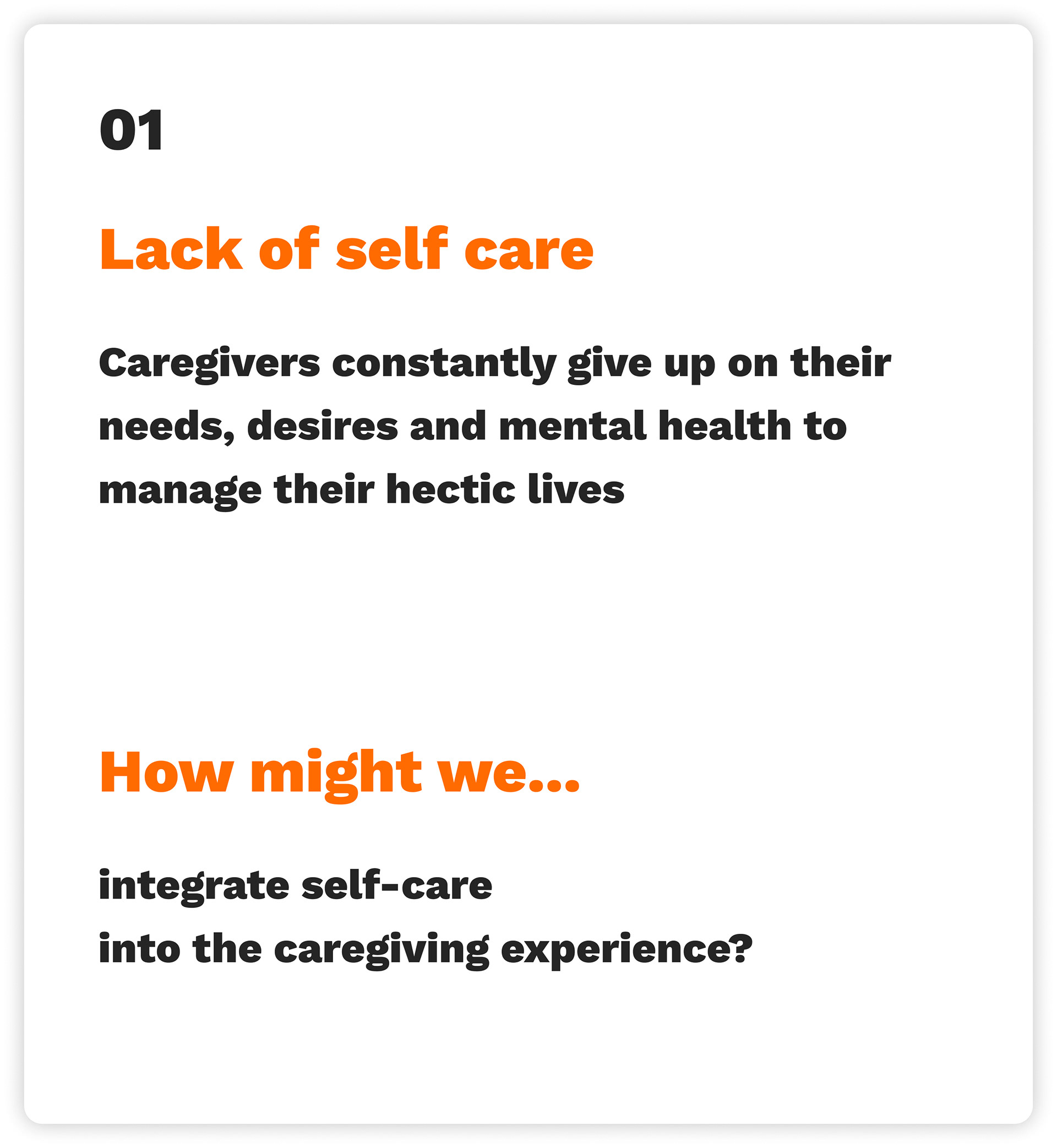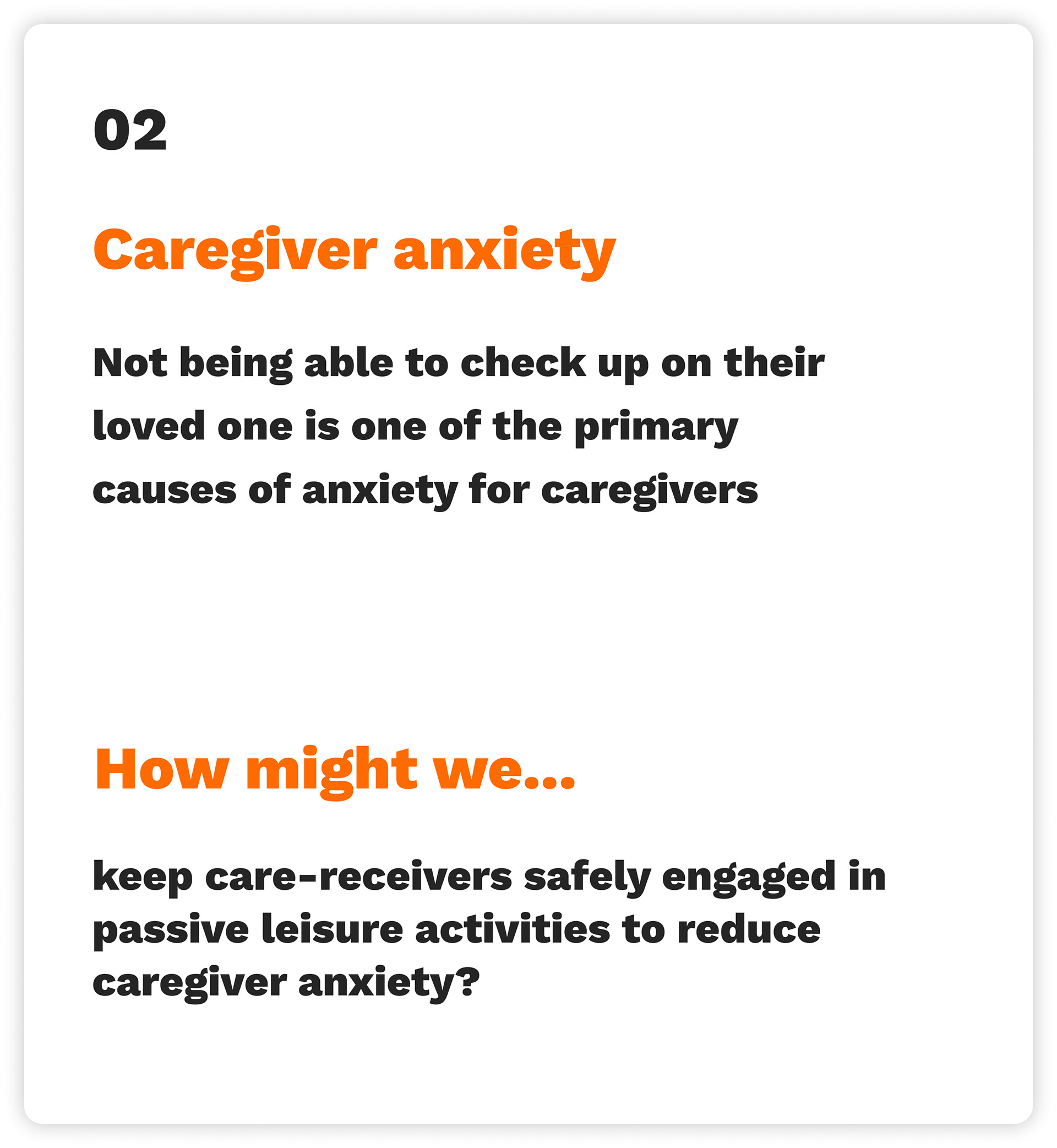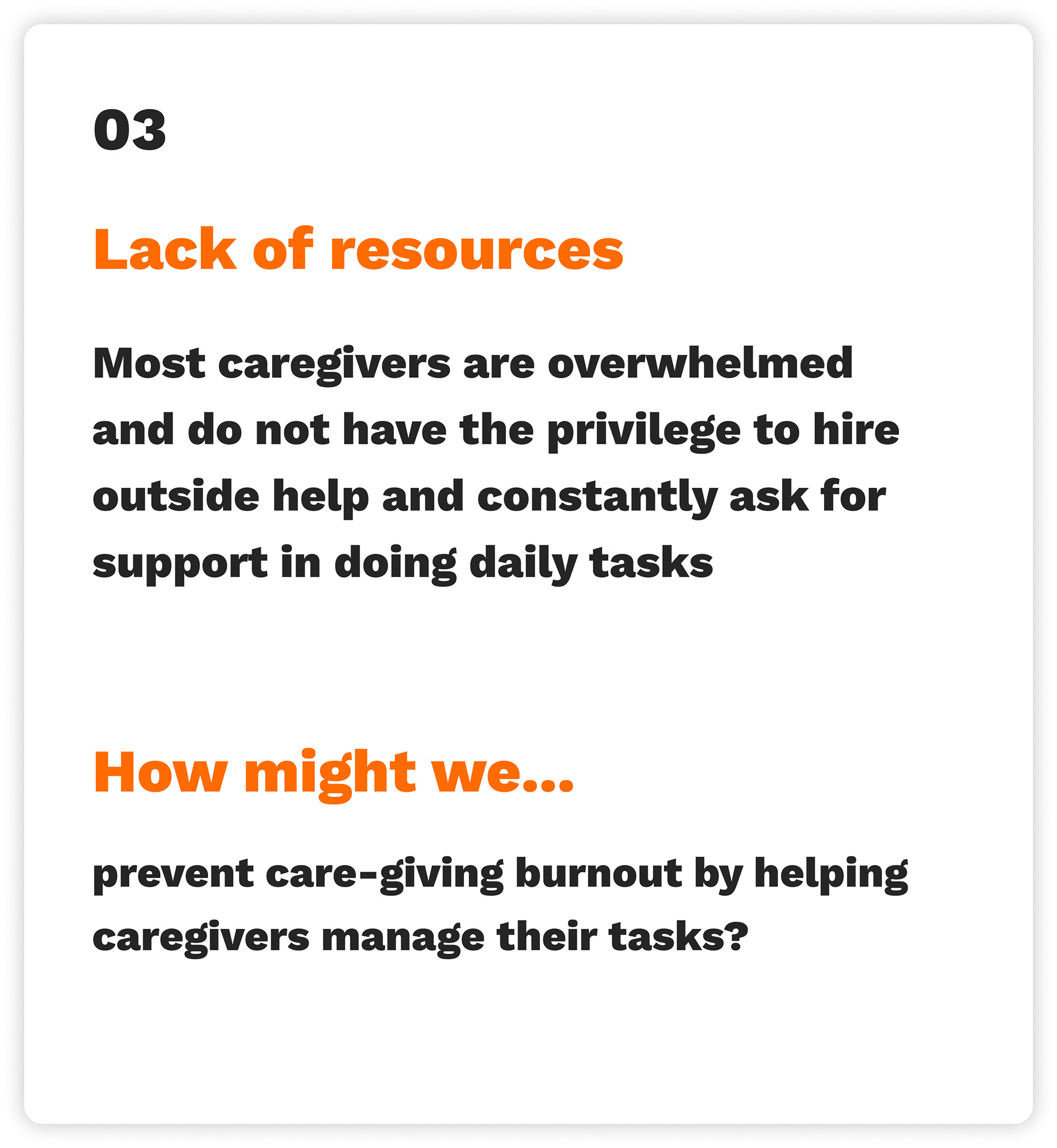Role
Project Liaison, Caregiver Interviews, Synthesis, Ideation
Project Collaborators: Ana Carvallo, Sounak (Pablo) Gupta, ShaoBo Zhang
Context
The caregiving experience is often filled with heightened emotions, physical tolls, and uncertainty. Despite moments of joy and togetherness that caregiving can bring, this ever-present duty tends to cause mental, physical, and economical strain on the individuals who become responsible.
As part of a student team, I was tasked with understanding the needs of primary caregivers of aging adults in their day-to-day lives and how I might help to boost the moments of happiness and alleviate the moments of hardship specifically through the use of technology.
deliverables
Our final deliverable was an app concept, TaskPool, that allows caregivers to request and pick up tasks within a community of like-minded caregivers as a means to save valuable time and to assist each other without having to pay for extra help.
Storyboard concept of the TaskPool App (Sketches by Sounak Gupta)
The TaskPool app was a concept our team felt had the most potential to make a tangible, less burdensome impact in the daily lives of caregivers due to its familiar app structure, functional benefit, and the capability to build relationships with a caregiver network.
Moving Forward
When we showed this concept to caregivers, we received good first impressions, but most importantly, a dialogue around ways to improve. Since none of our team came from a caregiver background, I would want to make sure that we better include these individuals in future discussions around which tasks are truly most demanding, what is crucial when it comes to privacy, and how they find ways to connect to other caregivers.
Takeaways
Research is a dynamic and complex process.
Iteration and experimentation is just as important to design research as it is to a physical product. Crafting discussion guides and aids is all well and good, but real conversation can be unexpected. Practice and thoroughness can lead to richer, more natural discovery.
As a researcher, I'm in a position of power.
Generally speaking, I have the power to do whatever I want from the information I've extracted from individuals, whenever I want, and however I want. When I am working in the space of a difficult topic, such as caregiving, I have the potential to cause harm to these individuals, perhaps through relived trauma or by leaving them in the dark about the developed solution. I hope to keep this conviction with me throughout my career, and as much as I am able, give away my power to people in the communities I am trying to serve.
Process
Primary Research
Through dscout, an online research scouting platform, we carried out virtual sessions with five caregivers to learn about their unique environments, experience with different types of technology, and emotional and physical needs.
With an additional four caregivers, we conducted sessions to gain feedback on three technology-driven concepts. I was able to moderate one of each session type, practicing active listening and guiding discussion to attain deeper-level learnings, and observe the remaining seven sessions as a recording aid for my teammates.
Picture association and ranking activities to stimulate conversation around emotional, cognitive, functional, and cultural needs
Secondary Research
To aid our live sessions, we also consulted scholarly articles about technology trends and new development within and for the aging population and pre-recorded media for the more informal, day-to-day perspective.
Synthesis
Through each stage of research, we collated notes and quotes to articulate insights, tensions, and how-might-we statements to prepare for our ideation phase.
We consolidated our findings into three main insights about the caregiving experience:



Ideation
We brainstormed around facilitative how-might-we statements formed from our initial research: first, individually, then together, as a team around grouped ideas. We came out of brainstorming with six big ideas which we distilled into three after discussing feasibility.
After this, we started iterating on concepts where we went back-and-forth on features and mocked up user interactions while continuously checking our solution against the needs of our intended user.